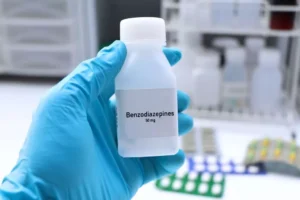
Sessions began with reviews of cravings, high-risk situations, and any alcohol consumption between each session. There was a brief mention of AA attendance and coverage of drink refusal skills and relapse prevention. Based on the content of treatment protocols, anger regulation material comprised approximately 0.4% of the AAF condition and 64.2% of the AM condition. AA-related material comprised approximately 45.0% of the AAF condition and 5.4% of the AM condition. Alcohol-related treatment material comprised approximately 54.6% of the AAF condition and 30.4% of the AM condition. The link between alcohol and anger has to do with alcohol’s ability to remove your inhibitions and disrupt your emotional regulation.

Treatment Options for Alcohol Abuse & Addiction
Understanding this connection is vital in addiction treatment, as addressing underlying anger issues is crucial for long-term recovery. Therapeutic approaches aim to unravel the roots of anger-driven addiction, helping individuals develop healthier ways of managing anger and breaking free from the cycle of substance dependence. Throughout this exploration, we will delve into effective strategies for managing anger in addiction recovery, emphasizing the significance of anger management techniques and therapeutic interventions. By empowering individuals with the tools to navigate and address their anger, we strive to foster resilience and promote holistic healing in the journey toward sobriety. Alcohol dependence and significant alcohol involvement not reaching the level of dependence are often comorbid with a variety of anger-related consequences including interpersonal violence and conflict (Chermack et al., 2010).
- My favorite tool is keeping Sobriety Gratitude Logs, which I share in my free Monthly Sober Curious Magazine.
- Situations arise in everyday life that cause sadness, anger, fear, anxiety, and excitement.
- Table 2 displays demographic characteristics for the sample as a whole and separately by treatment condition.
- Perhaps the biggest reason that anger must be dealt with during addiction recovery is that anger is strongly tied to relapse.
Dealing with Being Angry While Sober
Recognizing that individuals may grapple with underlying traumas or stressors fueling both alcohol consumption and anger eruptions, it becomes essential to address these issues holistically. By identifying triggers, stressors, and maladaptive coping mechanisms, treatment can target these underlying issues and promote healthier alternatives for managing emotions and cravings. Misconceptions often surround the relationship between alcohol consumption and emotional alcoholism and anger responses, particularly anger. Alcohol consumption significantly increases the likelihood of expressing anger while intoxicated. As alcohol impairs cognitive functions and inhibitions, individuals may experience a diminished ability to rationalize or diffuse feelings of anger. The connection between alcohol consumption and anger is complex, with alcohol often acting as a catalyst that amplifies underlying challenges related to anger management.
Clarifying the distinctions between these emotional responses
However, it can be harmful and destructive if you cannot control your anger. Remember, mom rage does not make you a bad mom—it makes you a human mom. Looking back at https://ecosoberhouse.com/article/who-sober-alcoholics-are-and-what-it-means-to-be-sober/ this moment, I can see my distress boiling under the surface. My dog was barking, my daughter was crying, and a sing-along cartoon played loudly in the background.
Medication as Adjunctive Treatment
The absence of alcohol, previously used by many as a coping mechanism, exposes the nervous system to a new state of equilibrium, often resulting in heightened emotional sensitivity. This adjustment period can lead to increased irritability and anger due to the brain’s efforts to rebalance neurotransmitters like serotonin and dopamine, which are involved in mood regulation. Genetic, psychological, social and environmental factors can impact how drinking alcohol affects your body and behavior.


Step 3: Acknowledge Your Feelings
- Before exploring the de-escalation strategies, it’s crucial to understand the importance of managing anger in intoxicated individuals.
- Those who are dependent on alcohol should participate in alcohol addiction treatment to break the cycle.
- By consistently becoming angry or belligerent when you drink, you put yourself and others at risk.
- Such factors including head injury, neurochemistry, physiological reactivity, metabolism, and genetics.






